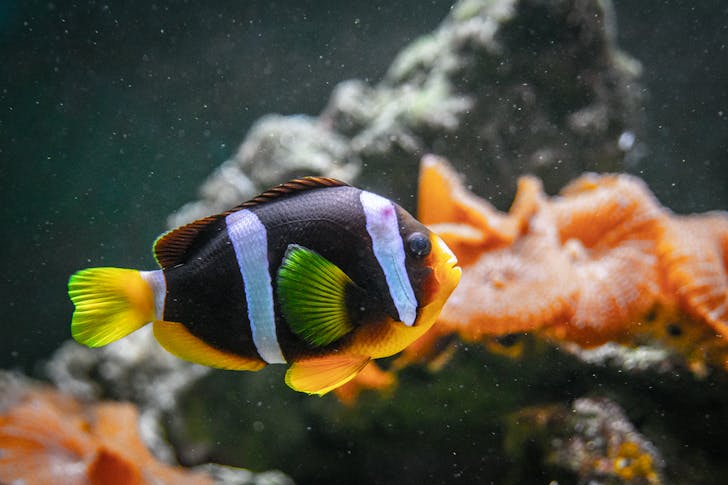When it comes to fish facts, there is so much more to these creatures than meets the eye. Fish are some of the most diverse, intriguing beings on our planet. Not only do they live in almost every aquatic environment, but their physical abilities, senses, and adaptations make them truly fascinating.
Here are some fun and lesser-known fish facts that will leave you awestruck:
The Whale Shark (the World’s Biggest Fish) is a Gentle Giant
The whale shark, known scientifically as Rhincodon typus, is the largest fish in the ocean. Growing up to an astonishing 40 feet long, these gentle giants glide through the ocean, captivating anyone lucky enough to spot them. Despite their intimidating size, whale sharks are incredibly docile and mainly feed on plankton, small fish, and other tiny marine organisms by filtering water through their mouths.
However, what is even more fascinating is how social they can be. Whale sharks often gather in groups, called aggregations, to feed and socialize, especially in areas where plankton is abundant. Even though they are the biggest fish around, they pose no threat to humans and are even known to swim alongside divers peacefully.

Saturn / Pexels / The world’s tiniest fish - dwarf goby - is male!
The World’s Smallest Fish Is a Male Dwarf Goby
On the opposite end of the size spectrum, we find the dwarf goby, scientifically known as Paedocypris progenetica. This tiny fish, which hails from the swamps of Sumatra and Bintan in Southeast Asia, holds the title of the smallest fish species in the world. Male dwarf gobies grow only to about 8 millimeters, small enough to sit on your fingernail!
Their diminutive size allows them to slip through the narrowest of spaces, hiding from predators and exploring areas too tiny for larger fish.
Not All Fish Can Swim Backward!
It might be surprising to learn that not all fish are capable of reversing. While some fish, like eels, have the flexibility to swim backward, most fish are physically unable to do so. This limitation is due to their body structure, specifically the way their fins and muscles work together to propel them forward.
Fish rely on their fins to steer, and most fins are designed to push them only in one direction: Forward. As a result, when a fish needs to stop or turn around, it usually has to make a looping motion rather than a direct backward movement.
Fish Facts: They Have Super Senses!
When we think of animal senses, fish might not be the first creatures that come to mind, but they actually have some super senses that help them thrive underwater. Fish are equipped with a specialized line of sensory cells called the lateral line, which runs along their sides.

Eka / Pexels / Things get a bit more complicated when you are talking about different species. In that case, you use "fishes." For example, “The aquarium houses several fishes from various ecosystems.”
This unique sensory system allows them to detect vibrations, changes in water pressure, and even movement from nearby creatures. It is like having a built-in radar system that helps them locate prey, evade predators, and navigate murky waters.
The Word “Fish Is Both Singular and Plural
One of the most quirky fish facts is the word "fish" itself. When referring to a single species, you use "fish," as in "a fish swims in the pond." However, when talking about more than one individual from the same species, you still say "fish," like "there are many fish in the lake."
This linguistic twist makes the term "fish" uniquely flexible. If nothing, it reflects the diversity of these creatures themselves.
Fish Have Unique Sleeping Habits
Fish don’t sleep in the same way that humans or other animals do. But they do have periods of rest. Unlike mammals, fish don’t have eyelids, so they don’t close their eyes to sleep. Instead, many fish simply become less active, finding a safe place where they can rest without being disturbed.
Some fish float near the bottom of their habitats, while others tuck themselves into coral or rocky nooks.








